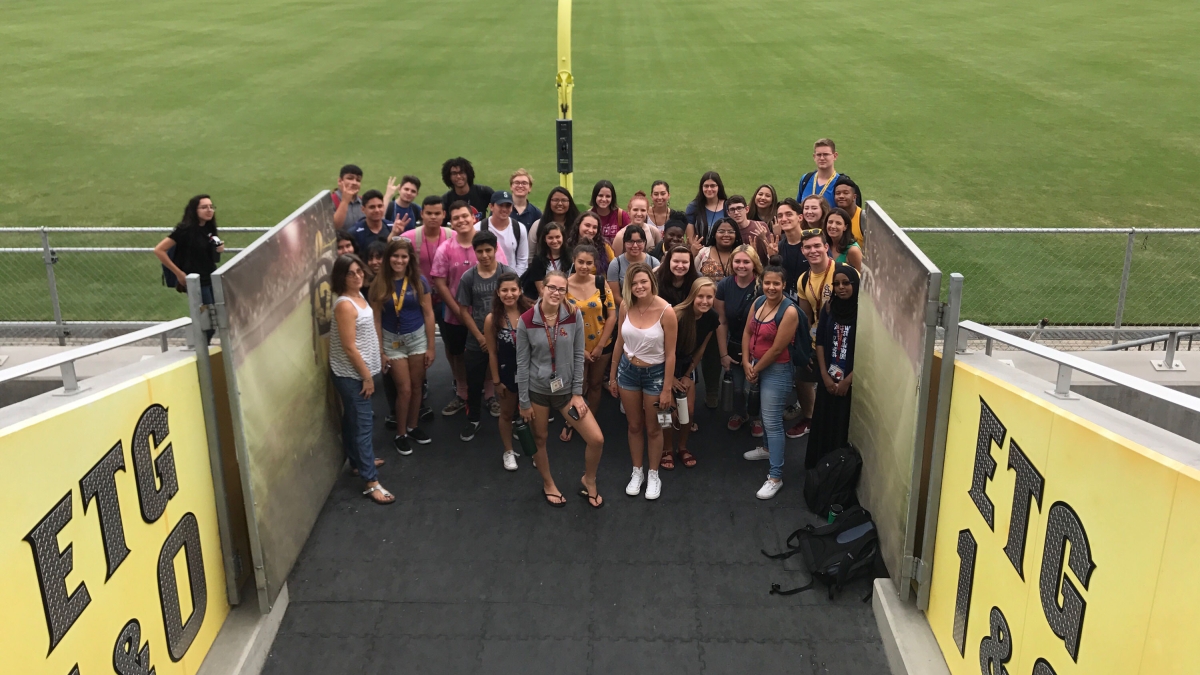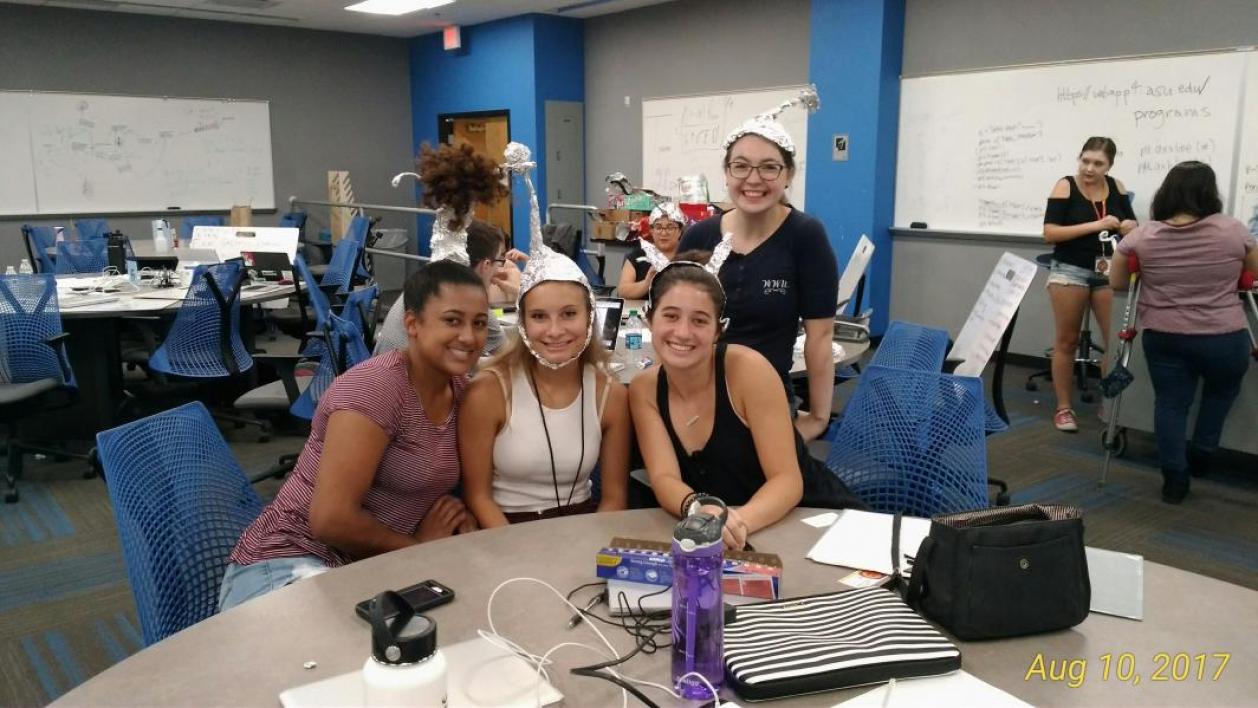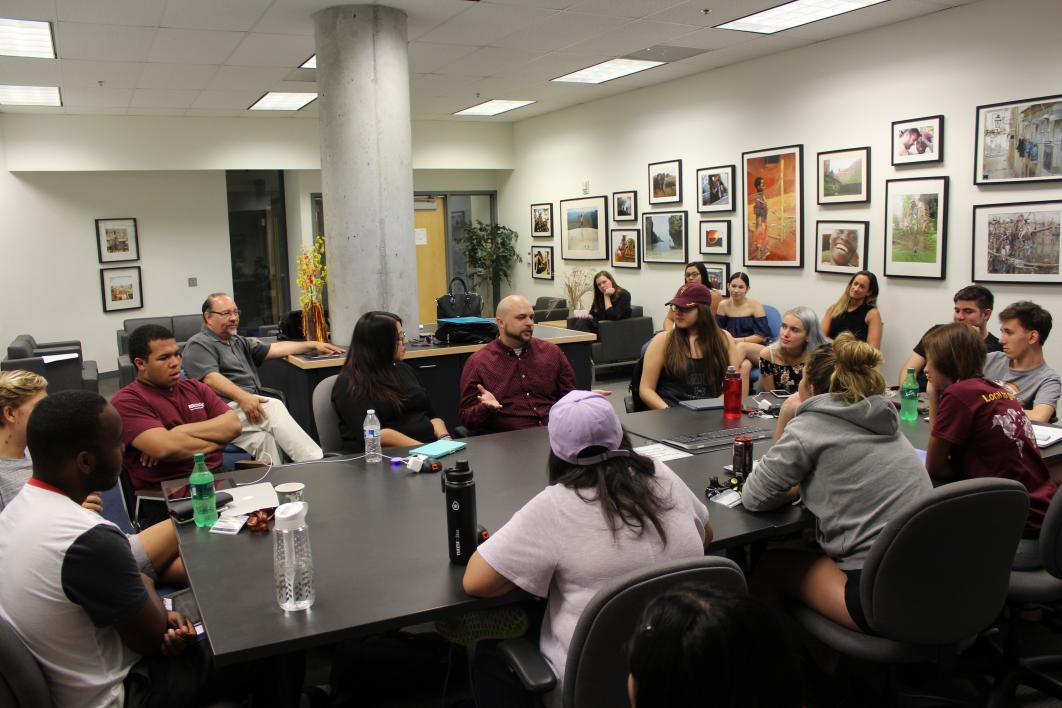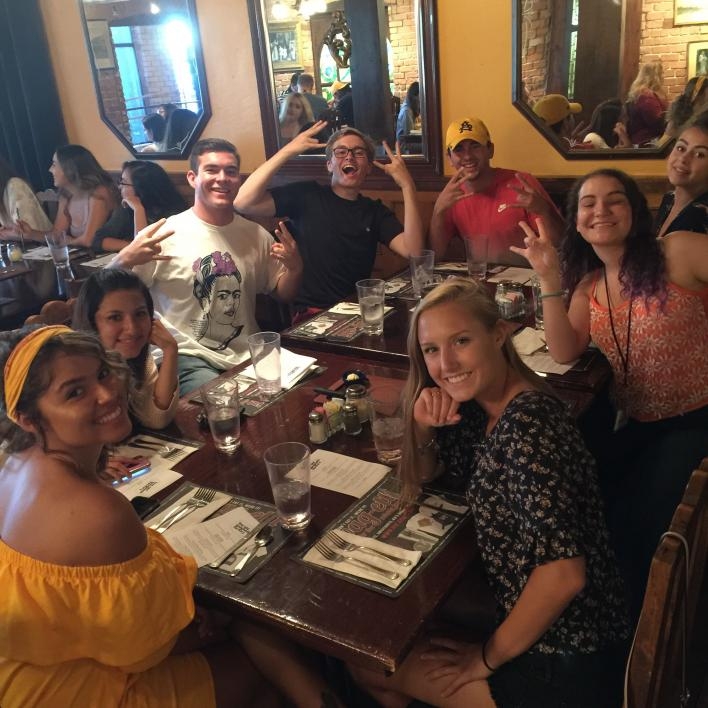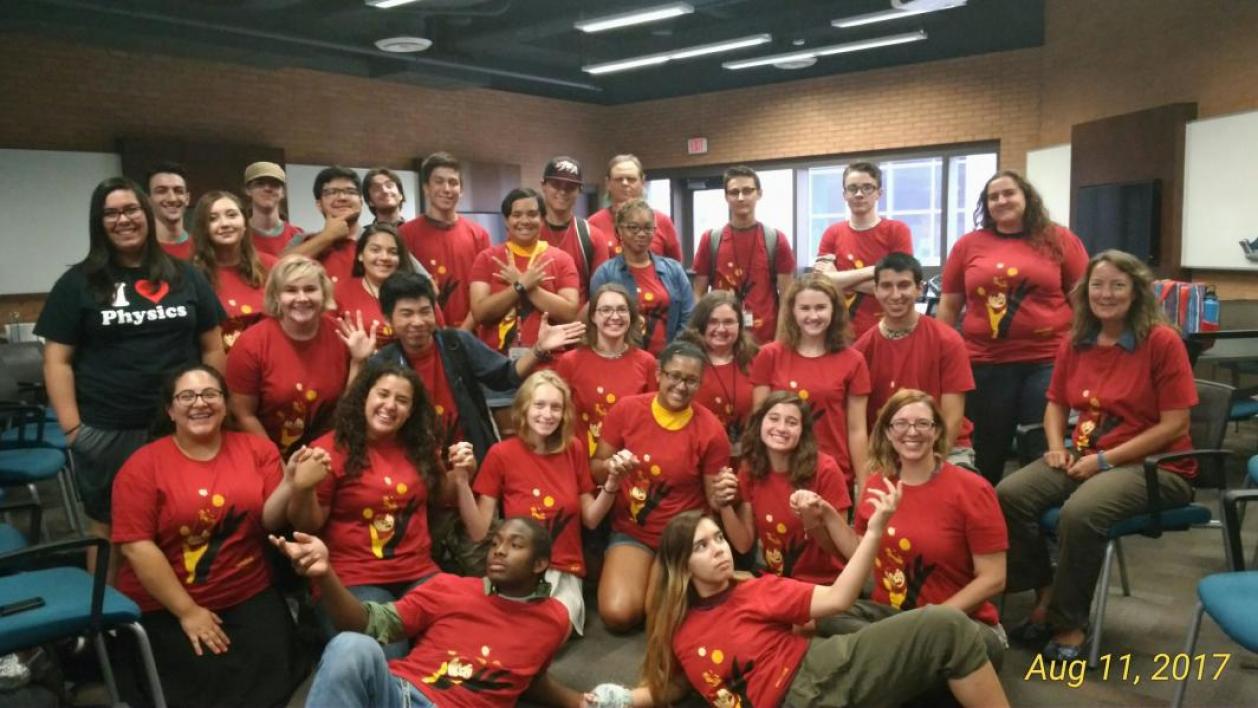As an out-of-state, incoming first-year student to Arizona State University, Angelica Berner decided to attend an Early Start program in the College of Liberal Arts and Sciences.
“It was the best decision I could have made — not just for my career but for my overall success,” said Berner, a double major in physics and exploration systems design who participated in the Sundial Early Start program for the Department of Physics and the School of Earth and Space Exploration. “I couldn’t be more grateful for the opportunity.”
In 2014, the College of Liberal Arts and Sciences established Early Start: a discipline-specific, two-week immersion program to help incoming first-year students gain the necessary tools for a successful college career. Held prior to the start of fall semester, Early Start participants work with faculty members and peer mentors in their academic unit to learn how to excel both academically and socially at ASU.
“The most important aspect of the program is it enables students to start college with a community,” said Anna Zaniewski, an associate instructional professor in the Department of Physics who came to the university to develop a program of such nature. “This shared experience develops a community of faculty, graduate students, upperclassmen and participants who want to see each other succeed.”
The college currently offers 11 different programs to help students become familiar with their major, their academic unit and the university. During this experience, students participate in a variety of workshops and activities to increase their likelihood of success at the university.
“Many incoming freshman don’t know anyone, don’t know what to expect,” said Richard Herrera, associate professor and associate director of the School of Politics and Global Studies. “The program demystifies the university. Students become familiar with their major, with each other and see that faculty and staff are real people whose goals are to help students succeed.”
Chloe Lopez, a first-generation college student majoring in political science, attended the first Early Start program in the School of Politics and Global Studies. She said she jumped at the opportunity to arrive to campus early and meet future professors and fellow students.
“Coming to a university, let alone one of America’s largest universities, was daunting,” Lopez said. “Arriving early allowed me the opportunity to acclimate to university life at my own pace. The program also forced me to discover what I was passionate about and then taught me how to cultivate this passion into a successful component of my daily life.”
Lopez said the Early Start program takes students with diverse backgrounds, some of which may be seen as an adversity, and equips these students with the tools to jump start their success in college.
“From learning how to think critically to gaining the confidence to run in a student election, I saw the immediate and long-term impacts the program made in my life, personally and professionally,” she said.
Associate Professor Jessica Early in the Department of English co-directs the Humanities Early Start program with assistant professor Christina Saidy. Early said the program has become one of her favorite parts of working at ASU.
“I love working with new first-year students in their first two weeks,” said Early, who was asked to direct the program because of her experience in English education and research with first-generation students. “We spend these two weeks deeply immersed in reading and writing in connection to the humanities.”
Early describes the program as rigorous, welcoming, interdisciplinary, diverse and a productive experience for students and faculty. She said she’s honored to be a part of it.
“The Early Start program is ASU at its very best,” Early said.
Most students live on campus during Early Start, which makes it a more comprehensive, well-rounded, integrated experience. Participants learn how to navigate the complixities of campus by touring research labs, libraries, support centers, classroom buildings and more to prepare for the upcoming semester.
“Early Start is the best transitional program ASU has for incoming freshmen,” said Maximilian Fees, a philiosophy major who participated in the Humanities Early Start program for the Class of 2021. “It’s an opportunity to claim ASU’s campus as your own. After two weeks, I could confidently call ASU my new home. I am comfortable on campus and my transition to the semester was a smooth one.”
Assistant Research Professor Elissa Adame led the Early Start program this summer for the Hugh Downs School of Human Communication. She said she was impressed with the program design and the dedication from faculty and staff across the campus, offering resources, help and encouragement.
“When my students started the program, I heard a general buzz about how they would be ‘just a number’ at ASU,” Adame said. “At the end of the program, students replaced these narratives with talk about the helpful, inviting and inspiring people at ASU who are here to see them graduate. I am confident the Early Start students recognize ASU’s commitment to them and to their success.”
Thousands of college students nationwide have benefitted from programs like this one. Students who participate in the Early Start program are more likely to return for their second year compared to similar students.
“Retention and quality of time at ASU are two things that are really important to me,” said Gina Woodall, co-director of the School of Politics and Global Studies Early Start program. “Testing programs that may help both these variables is meaningful and useful not only to our school, but universities nationwide.”
Woodall and Herrera have been examining the effectiveness of this type of program for incoming freshmen, many of whom demonstrate risk factors for maintaining satisfactory academic progress in college. The research revealed higher levels of resilience and sense of community among the participants compared to students who didn’t participate, said Herrera. It also showed they performed academically on par for introductory-level courses with their peers who didn’t attend the program.
The Early Start programs also incorporate a great deal of student leadership and ownership. Early Start participants have the opportunity to return as facilitators and mentors after their freshman year. This dynamic gives participants a new perspective of university life from those who know it best: current students.
“Being a facilitator/mentor is an amazing experience,” said Berner, a participant turned mentor. “I was able to share the things I found most important. As a mentor, you realize you don’t want to give all the answers to questions a mentee may ask. Instead, you want to guide them to find their own answers.”
Currently, Berner is conducting research in the Emergence Lab with Sara Walker, an assistant professor in the School of Earth and Space Exploration. The position was a direct result from a connection with a former Early Start mentor.
The most valuable aspect of the program is the deep and meaningful relationships students cultivate, said Lopez, who still keeps in contact with fellow participants and mentors in the program.
“Our experience in Early Start was a game changer,” she said. “Students enter uncertain of university life and leave the program empowered.”
The Early Start program is funded partially by private support, including two significant donations from a major corporation and Laura and Herb Roskind.
Top photo: The 2017 Humanities Early Start participants and mentors took a tour of the Sun Devil Stadium while getting to know the Tempe campus.
More Arts, humanities and education

ASU’s Humanities Institute announces 2024 book award winner
Arizona State University’s Humanities Institute (HI) has announced “The Long Land War: The Global Struggle for Occupancy Rights” (Yale University Press, 2022) by Jo Guldi as the 2024…

Retired admiral who spent decades in public service pursuing a degree in social work at ASU
Editor’s note: This story is part of coverage of ASU’s annual Salute to Service.Cari Thomas wore the uniform of the U.S. Coast Guard for 36 years, protecting and saving lives, serving on ships and…

Finding strength in tradition
Growing up in urban environments presents unique struggles for American Indian families. In these crowded and hectic spaces, cultural traditions can feel distant, and long-held community ties may be…
